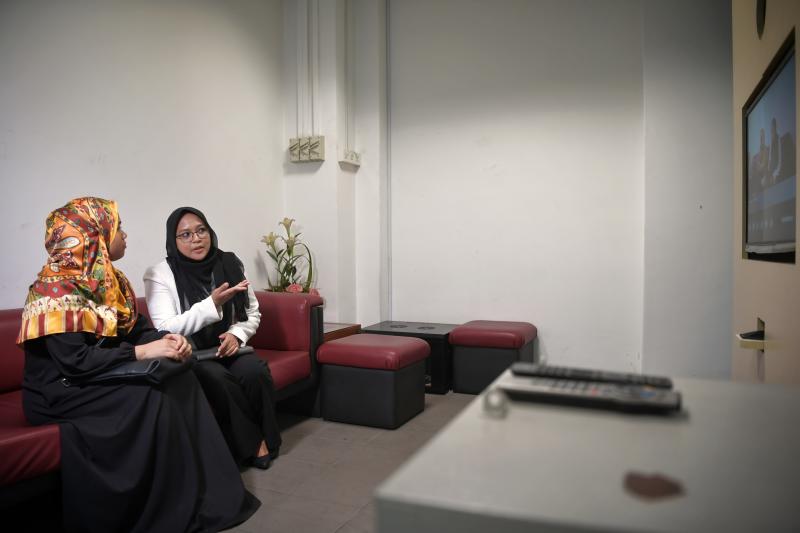Law change sees mandatory marriage counselling extended to Muslims in prison
Sign up now: Get ST's newsletters delivered to your inbox

Madam Siti Hazlinda Karim (right), a senior counsellor at Jamiyah Counselling Centre, during a reenactment of the Marriage Counselling Programme with incarcerated parties, spouse and counsellor at the Kampong Ubi Community Centre on June 21, 2019.
ST PHOTO: KUA CHEE SIONG
SINGAPORE - A law change last year made it mandatory for all Muslim couples who are planning to divorce to undergo marriage counselling.
This month, it has been extended to Muslims who are in prison.
On Friday (June 21), the Syariah Court revealed details of how inmates are taking part in its Marriage Counselling Programme (MCP).
Counselling sessions are conducted face-to-face at the prison unless this is not viable - such as when a spouse has young children to care for and cannot be away from home for long - in which case they can be conducted through video-conferencing from satellite centres.
There are six satellite centres, including Kampong Ubi Community Centre and Singapore Anti-Narcotics Association.
Inmates with dependent children will undergo up to five counselling sessions while those without will undergo up to three.
If reconciliation is not possible, the MCP hopes to mediate an amicable divorce.
Currently, there are three inmates participating in the programme with their spouses.
The MCP was launched in 2004 and has since helped to save the marriages of 48 per cent of couples who have been counselled.
It was made mandatory for all Muslim couples planning to divorce under an amendment to the Administration of the Muslim Law Act last October.
Speaking at Kampong Ubi Community Centre on Friday, Senior Parliamentary Secretary for Home Affairs and Health Amrin Amin said: "We hope to save marriages where they can be saved... to provide an avenue for parties to resolve their differences and to ensure that couples don't divorce for the wrong reasons, such as misunderstanding and miscommunication."
Madam Siti Hazlinda Karim is a senior counsellor at Jamiyah Counselling Centre, which is experienced in working with inmates and one of the agencies under the MCP.
The 41-year-old, who has been a counsellor for 14 years, said: "Thinking of their families motivates them to change, but once they are out of prison, they also need strong support in order to be successful."


